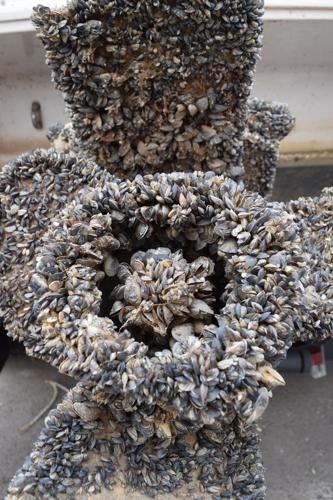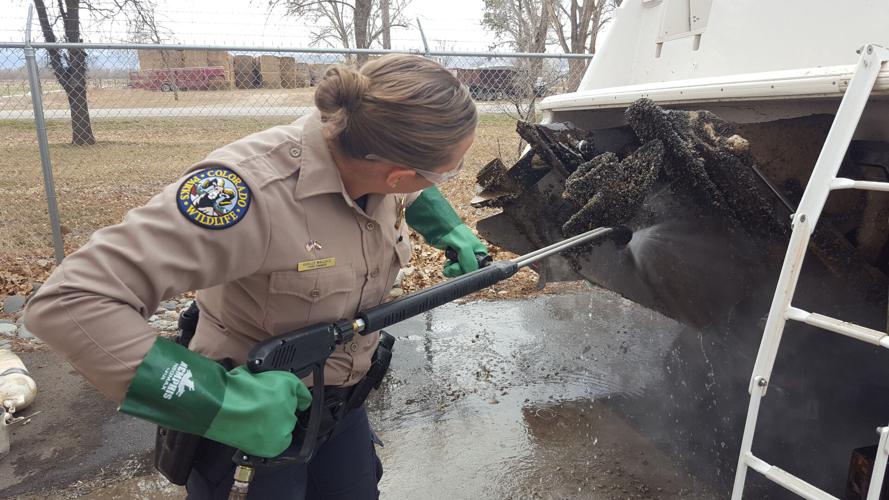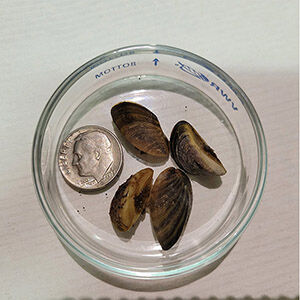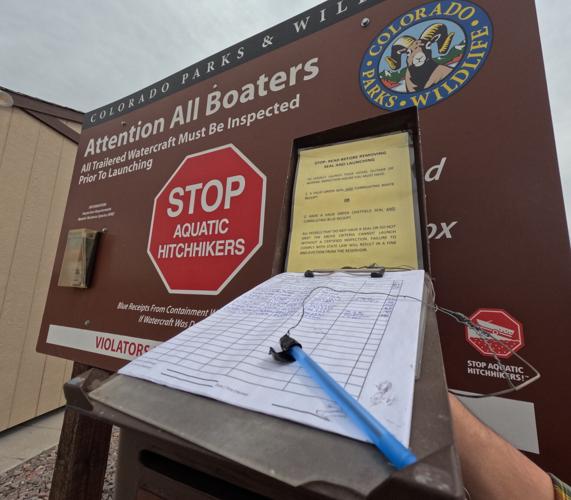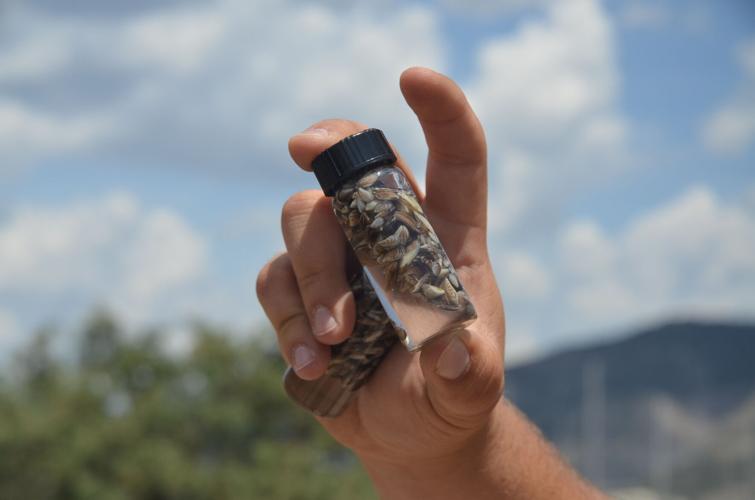CPW establishes permanent aquatic pest inspection stations for boats at Colorado borders
Tiny mollusks from eastern Europe are a threat to Colorado water infrastructure and ecologies that the Colorado Division of Wildlife has been battling against since 2007.
Legislation in 2021 authorized a study of the threat to Colorado waters. CPW and the Colorado State Patrol are setting up permanent inspection and decontamination stations at the Trinidad Port of Entry on I-25 and on I-70 at the Loma Port of Entry at the Utah state line, according to a news release.
The stations will operate March 14 through Oct. 31, Thursday thru Monday. All vehicles with a motorized or trailered watercraft entering the state will be required to stop for an inspection.
CPW said inspection can go quicker if boat owners thoroughly clean and dry their craft before entering Colorado. Any vessels that are wet or muddy will be decontaminated before being allowed to proceed.
Vessels that are clean and dry will be issued a green seal and white inspection receipt showing they passed inspection, as will decontaminated vessels.
“All trailered and motorized watercraft will still be required to go through an ANS inspection at their final destination,” according to the release.
“Inspecting the highest risk watercraft at ports of entry will serve as a first line of defense and help ensure Colorado’s lakes and reservoirs remain free of highly destructive aquatic nuisance species,” said Robert Walters, CPW Invasive Species Program Manager.
Based on an infestation of these invasive aquatic pests in Highline Lake, and evidence of potential infestations in many more lakes and reservoirs, including deep cold-water mountain reservoirs, CPW began a program of requiring all trailered watercraft entering the state to be inspected before they can be launched.
A successful pilot inspection and decontamination project in 2022, where 95 watercraft were checked in three, one-day inspections over the summer, decontaminated 60 watercraft, 26 of which were confirmed to have adult mussels.
In the second year of the pilot program in 2023, CPW operated nine inspection and decontamination stations at ports of entry and welcome centers across Colorado. CPW inspected 21 vessels, two of which were found to have adult mussels.
“While we did not see the number of watercraft during the 2023 operations, we still prevented two boats with mussels from entering Colorado waters and gained a better understanding of motorized boat travel into the state,” said Walters.
“Based on the information gathered in 2022 and 2023, CPW determined that the Loma and Trinidad Ports of Entry would be the highest impact locations for the next phase of the program, as they saw the highest number of high-risk out-of-state motorized boats,” said a release from CPW.
Zebra and quagga mussels are small freshwater mollusks related to oysters that are native to the Black, Caspian and Azov seas and to the Dnieper River drainage in Ukraine.
They are small, and their larva are microscopic. They arrived, it is suspected, in the Great Lakes in 1988 aboard ocean-going ships. In 2007, they were discovered in Lake Mead, more than 1,000 miles further west than any other known infestations at the time.
They cluster together and can block water intakes at dams and can reduce flow to hydroelectric generators. They also consume nutrients needed by native species and deplete food sources. Once established they are extremely difficult to eradicate, sometimes requiring completely draining a reservoir so it can be treated with chemicals.
“The primary method of overland dispersal of these mussels is through human-related activities, especially trailered watercraft,” said the CPW web page on invasive mussels. “Given their ability to attach to hard surfaces and survive out of water for extended periods [30 days!], many infestations have occurred by adult mussels hitching rides on watercraft. The microscopic larvae also can be transported in bilges, ballast water, live wells, or any other equipment that holds water.”





